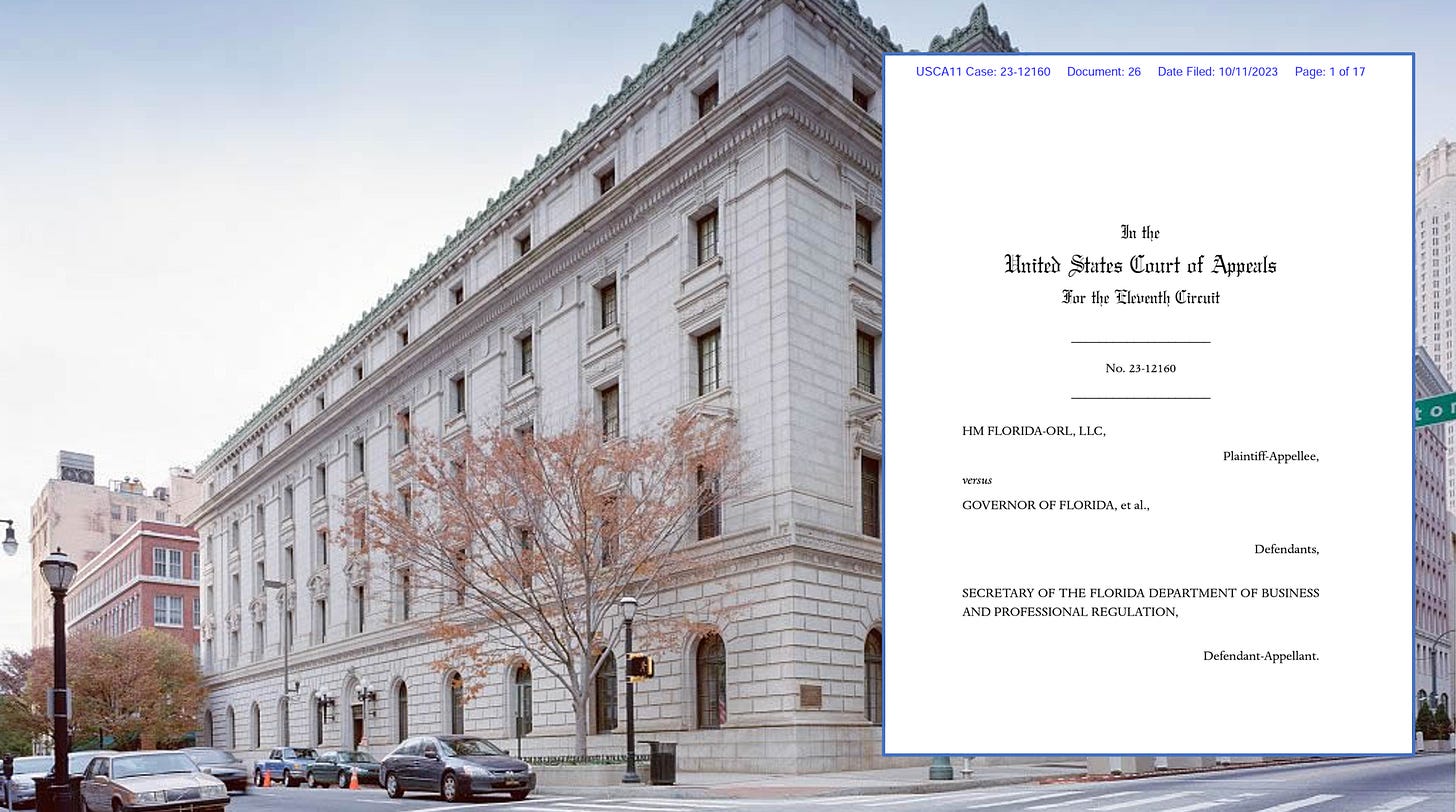11th Circuit Court Upholds Ruling Blocking Drag Ban
In a major ruling released Wednesday, the 11th Circuit Court of Appeals in the United States ruled that Florida's ban on drag will continue to be blocked from enforcement statewide.
In a significant ruling released Wednesday by the 11th Circuit Court of Appeals, the Florida drag ban will not be allowed to take effect. This decision upholds an injunction issued by a district court judge in June that did likewise. Florida had been the site of several enforcement threats against drag events, prompting some Pride celebrations to cancel their parades out of concern over the drag laws being weaponized against them. Now, however, drag will continue to be legal in the state. This ruling marks the latest in a series of victories against these types of laws nation-wide.
The 11th Circuit Court of Appeals, covering Alabama, Georgia, and Florida, has been a difficult circuit for challenging anti-LGBTQ+ legislation. Earlier this year, the court, for instance, upheld a school bathroom ban for trans youth, deeming it likely constitutional. Similarly, the ban on gender-affirming care for trans youth was also upheld by the court, drawing on reasoning from the Dobbs case that overturned abortion rights. Thus, the recent ruling might have been unexpected for those who anticipated the court maintaining its pattern of upholding laws that target the LGBTQ+ community.
That was not the case on Wednesday, however. When deliberating on the anti-drag law, the court was not tasked with evaluating the inherent merits of the law. Instead, they ruled on whether the law should be wholly blocked or just limited to Hamburger Marys, a renowned drag brunch spot in Florida that has been heavily targeted by the state. In the end, the court determined that the law posed a threat to constitutionally-protected free speech and expression and affirmed that the block of the law would stand for the entire state of Florida.
In doing so, they cited major precedent over blocking overly-broad laws targeting freedom of speech, such as this section of Ashcroft v. ACLU, a first amendment lawsuit challenging portions of the Child Online Protection Act:
“There are also important practical reasons to let the injunction stand pending a full trial on the merits. First, the potential harms from reversing the injunction outweigh those of leaving it in place by mistake. Where a prosecution is a likely possibility, yet only an affirmative defense is available, speakers may self-censor rather than risk the perils of trial. There is a potential for extraordinary harm and a serious chill upon protected speech. The harm done from letting the injunction stand pending a trial on the merits, in contrast, will not be extensive. No prosecutions have yet been undertaken under the law, so none will be disrupted if the injunction stands. Further, if the injunction is upheld, the Government in the interim can enforce obscenity laws already on the books.”
Prior to the ruling, the Florida drag ban had done significant harm in the state. Treasure Coast Pride Fest cancelled their pride parade, citing the new law, and also made it so that in person pride events would be 21-and-up. Tampa Pride likewise cancelled a large celebration. Several drag organizers expressed concern over how the law could be weaponized against them. Now, some of those questions are resolved, at least for the time being.
Florida isn't alone in having its drag law halted from being enforced. This year, courts have put a stop to comparable laws in several other states. Days before Helena was set to host a Pride event, Montana's anti-drag law was blocked. Tennessee's drag law was similarly deemed unconstitutional and faced another block when a district attorney attempted to enforce it anyway in Blount County. Texas' prohibition on drag was also blocked as likely unconstitutional. However, in North Texas, Judge Kacsmaryk permitted a local college to implement a drag ban within his jurisdiction.
Drag laws are just one of several kinds of bills targeting the LGBTQ+ community around the United States. Their overly-broad way of defining drag has also been used to target transgender people in the states in which they have passed. That said, anti-drag bans have been resisted a little more strongly than most other legislation given the clear implications such laws have towards first amendment rights, a step too far for even most Republicans. As we look to 2024, when more legislators will consider such legislation, these rulings should give them pause and give those who testify against them much needed ammunition to block their passage.



I monitor legislation and know how time consuming it is. Erin I so appreciate your time, energy, commitment, and work to preserve, protect and promote LGBT+ rights. I am a LGBT+ ally and you are a treasure to be valued.
I can't get excited by this while gender affirming care is being denied and bathroom bans are enforced within the same district. I mean, sure. A win is a win, I suppose. Yay?